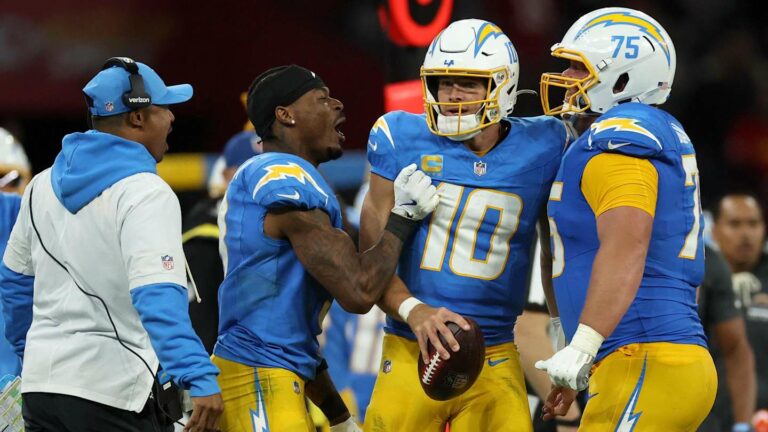
The Storm Brewing at Northwestern: Professor Thrasher’s Tenure Denial Sparks Debate
Northwestern University’s Medill School of Journalism, Media, Integrated Marketing Communications finds itself at the center of a heated controversy after denying tenure to Professor Steven Thrasher. The decision, communicated to Thrasher by Medill Dean Charles Whitaker on March 12, has ignited a firestorm of accusations, counter-accusations, and concerns about academic freedom and freedom of speech within the university. Thrasher alleges that the tenure denial is a direct result of his participation in the April 2024 pro-Palestinian encampment, where he actively sought to protect student protesters. The university, while refraining from commenting on personnel matters, maintains confidence in Medill’s decision-making process.
The timeline of events leading up to this decision is complex. Thrasher’s involvement in the pro-Palestinian encampment appears to be the catalyst for the current situation. Following his participation, Medill initiated an investigation into his conduct, ultimately canceling his Fall Quarter classes in September. While misdemeanor charges against Thrasher related to the encampment were dropped in July, the university launched a new investigation in January, despite finding no grounds for suspension based on the initial inquiry. The situation is further complicated by conflicting evaluations of Thrasher’s performance. His 2023 mid-tenure review lauded his work, yet Dean Whitaker recently deemed his teaching “inadequate,” a claim Thrasher disputes. These contradictory assessments raise questions about the true reasons behind the tenure denial.
The denial of tenure has far-reaching implications. It raises concerns about the potential chilling effect on academic freedom and the willingness of faculty to engage in political activism or express dissenting views. Thrasher himself views the decision as a political attack, arguing that it is intended to silence him and intimidate others within the university community. He draws parallels to the case of Mahmoud Khalil, a Columbia University pro-Palestinian protester detained by immigration officials, suggesting a broader trend of universities suppressing free speech. The controversy extends beyond the immediate case, sparking a wider debate about the role of universities in fostering open dialogue and protecting the rights of their faculty and students.
Accusations and Defenses: A Clash of Perspectives
Professor Thrasher has vehemently denied that his scholarship or teaching is the basis for the tenure denial. He asserts that the decision is purely political, stemming from his support for Palestine and his efforts to protect student protesters from what he describes as physical attacks by the Northwestern Police. He emphasizes his nonviolent actions at the encampment, stating that he subjected his own body to potential assault in an attempt to create a barrier between the police and the protesters. Thrasher sees the tenure denial as a direct assault on his academic freedom and a message to other faculty and students that dissenting voices will be silenced.
Northwestern University, on the other hand, has remained tight-lipped about the specifics of the case, citing its policy of not commenting on personnel matters. However, the university has expressed full confidence in the decision-making process of the Medill faculty and dean. This statement suggests that the university believes the tenure denial was based on legitimate concerns about Thrasher’s performance or conduct, rather than political motivations. The university’s position highlights the tension between its commitment to academic freedom and its responsibility to maintain order and uphold its standards for faculty performance.
The conflicting narratives presented by Thrasher and the university underscore the complexity of the situation. Without access to all the relevant information, it is difficult to determine the true reasons behind the tenure denial. However, the accusations and defenses offered by both sides raise important questions about the role of political activism in academic life, the standards for tenure review, and the balance between academic freedom and institutional responsibility.
The Road Ahead: Appeal, Petitions, and a Fight for Academic Freedom
Professor Thrasher is not backing down. He has vowed to appeal the decision, utilizing the 60-day window provided by Northwestern’s Faculty Handbook. He is also actively mobilizing support through a Google Form petition, urging Medill to reconsider its decision. Additionally, a GoFundMe page has been established to help cover his legal expenses, raising a significant amount of money in a short period. Thrasher’s efforts demonstrate his determination to fight for his academic freedom and challenge what he perceives as an unjust decision.
The support Thrasher has received from colleagues and students highlights the widespread concern about the implications of the tenure denial. The petition and fundraising efforts suggest that many within the university community believe Thrasher has been unfairly targeted for his political views and activism. This support could play a significant role in the appeal process, as it demonstrates the strength of the opposition to the tenure denial and the potential damage it could inflict on Medill’s reputation.
As Thrasher prepares to appeal, the university faces a critical decision. It must carefully consider the evidence presented by Thrasher and address the concerns raised by his supporters. The outcome of the appeal will not only determine Thrasher’s future at Medill but also shape the university’s reputation as a defender of academic freedom and open inquiry. The case serves as a reminder of the importance of protecting dissenting voices within the academic community and ensuring that tenure decisions are based on merit, rather than political considerations.
The Broader Implications: Free Speech and the University’s Role
The case of Professor Thrasher at Northwestern University is not an isolated incident. It reflects a growing tension on college campuses across the country between the principles of free speech and academic freedom, and the desire to create a safe and inclusive environment for all students. Universities are increasingly grappling with how to balance these competing interests, particularly in the context of politically charged issues such as the Israeli-Palestinian conflict.
The suppression of free speech on university campuses has become a major concern for many academics and civil liberties advocates. They argue that universities should be bastions of open inquiry, where all ideas, even those that are controversial or unpopular, can be freely discussed and debated. They fear that the increasing pressure to conform to certain political viewpoints is stifling intellectual curiosity and creating a climate of self-censorship. The Thrasher case, they argue, is a prime example of this trend, where a professor is being punished for expressing his views on a sensitive political issue.
The university’s role in fostering free speech and academic freedom is crucial. It must create an environment where faculty and students feel safe to express their opinions without fear of reprisal. It must also ensure that tenure decisions are based on merit, rather than political considerations. By upholding these principles, universities can maintain their integrity as centers of learning and contribute to a more informed and tolerant society. The Northwestern case serves as a cautionary tale, highlighting the potential consequences of failing to protect free speech and academic freedom on college campuses.



